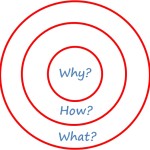Here are the slides to a presentation that I did today at this “Generation 2 Generation” conversation with the General Board of Discipleship and the Texas based conferences of the United Methodist Church. Below is an unedited article I wrote as part of the collection of talks. I went a little off script for the talk as you can probably tell.
Technology and the Church: How do we connect with Jesus?
by Gavin Richardson
gavin(at)youthworkercircuit.comTalking technology and the church these days can be a tricky as politics in the church. Similar words mean very different things to a host of different people. I am going to focus this article on “tools” of technology. There will be some naming of specific technology tools, but it should be minimal as even by the time of the printing of this article something is probably out of date and far from the cultures everyday consciousness.
Tools
Being considered by many as an “early adopter” and keeping company with some innovative tech types on a regular basis I get a lot of tool chatter. At the writing of this article I am receiving some 50 Google+ invites to ‘circles’ each day this week. When you read this that news will either be a big deal or no deal at all, thus is the life of a social media technology tool these days.
Our church leadership many times will many times get pre-occupied with the tools of technology or refuse them altogether. Why not have a pre-occupation, they are tangible in many ways, something of substance to talk about. The tools are the things that the cultural media likes to churn up. Hey, you can talk to us at….. (or actually talk to an intern) because we really want to know what you are thinking. We feel we have to own the latest tool in order to be relevant to a “they” that we have no clue who “they” really are. I hear pastors express in a manner of seeking forgiveness “I’m not on the Twitter yet.” As if I am some papal associate who needs to grant forgiveness for this awful sin. The tools are the micro things that need to be implemented in order to be relevant. However, we often never actually reflect on what the tool actually does for and to community.
Truth in the tools is this. We have people who love to embrace the new tool because that is important to them and those who wish to hold onto traditional tools of the past because that to is important to them. I say neither is bad, just different and if we come to understand some of those differences then we’ll be able to navigate the implementation of any new tool that comes along the way.
I am a terrible gardener. Horrible. Really really bad. Nothing lives in my gardens of any real beauty for any significant length of time except for some weed that might flower. My arsenal of gardening weapons is many and they cover a wide array of technological eras. I have a fancy spade that has indentations for measuring how deep a hole is (I really like that) as well there is the plain old boring nothing spade. In my arsenal of gardening tech is a plain old lumber saw. I never saw fit to buy a tree saw, that is until I needed to trim a tree. Too late at that point, right? One thing our house seems to have plenty of, bush trimmers. We have some extended handle manual trimmers, old classical manual wood handle trimmers and the fancy electrical trimmer. Call me crazy, but I use all three to try and tame the bushes of our home. The long handled manual trimmer can get into those far reaching spaces and up on top of a bush that I let get too tall (remember, I am horrible gardener). The electrical trimmer can speed its way through two or three bushes in the time it might take me to do one manually. Inevitably I notice that too much was cut off a bush and it looks more funny than normal, so I have keep trimming till it gets it just alright. Generally that takes a bit more time. Those old classical wooden handle ones are cool for me. I feel as if I am actually doing some work with them. The blisters from chopping away after awhile because I forgot where the gardening gloves were feel really good. The reverberations that move back up my body when I hit a branch that doesn’t want to be cut with my first powerful scissor strike. The wooden handle trimmer forces me to be a bit more choosy with my work and it takes more effort and time, but in the end I am generally pretty pleased. I am actually pleased with any of my work because they all helped me to try and create a little beauty in my otherwise messed up garden.
I get the poor results when I try to take my electrical trimmer and rub it onto the bush without plugging it into it’s power source. That takes forever, but it does cut eventually. Likewise, the other trimmers don’t do much unless I manually open them up and shut them. My neighbors would look at me funny for brushing over the bushes with a trimmer as if it were an electrical one.
Maybe you see where my silly analogy here.
When we think of the tools that come along with how we want to engage and move into this technological era we need to not just equip ourselves with one trimmer, but with a few different trimmers. When it comes to doing a full regiment of tending to the garden, we also need to have more than just trimmers. We cannot rely exclusively on one tool alone. So expand your technology toolbox. In the same mindset, we have to use these tools with their proper design. Marshall McLuhan has been quoted as saying that we ‘often move the content of the old technology as the content of the new’ and that is disingenuous to the new technologies. Translation, using our primary communication tool, the bulletin, and re-posting all that content and only that content onto a Twitter is a poor use of the tool and not plugged into the true power of that tool.
The greatest technological invention for the church, and for our most of our global culture, is the printing press. We have with the advent of the Gutenburg printing press started a protestant revolution, printed bibles for the masses, put together books, spread the news of the church in newspapers, created leaflets, printed out those wonderful Wesley sermon books and even the hymnals. Our church culture is totally shaped by the printed word, more so than many of us might be able to imagine because it is so evasive. It is no wonder that we have a hard time leaving behind our ways of gardening for some 500 years. But, the expansive development and adoption of new technology tools is changing that landscape and as a church we need to figure out how to garden in new ways. I heard a quote the other day saying that ‘people are not afraid of change, they are afraid of loss’ and that is so very true. I adopted a friends quotable of “To achieve something good you have to trade in a good.” Again two true nuggets that can be carried into these conversations. We want to shift our churches into a place of faithfulness and implement some good things. However, we acknowledge that we are trading something very good in order to make this change. Our people are not so much afraid of change, but of the loss of the good they affirm. You don’t get much flack when you start a contemporary service with all the projection and rock band as long as you don’t do it the same time as the good traditional service and infringe on the good looking sanctuary.
The video image is our game changer for today. It will never take the place of print or push it so far from existence that we forget about the days of print, but it is changing and making its own cultural impact on us and thus the church (I am the church and you are the church, we are the church together, right?). Our learning is not just a linear fashion of left to right and streamed thoughts. They function more in images and parsing stories together. This is not some younger generational thing, ask your congregation members what type of tv they watch and how much of it they watch. You might be getting some surprising results. Older generations are watching more and more television from the tv medium. It might be a “news” show, which according to Neil Postman is all about entertainment even if it is called news, that is on for hours all day. Maybe it is silly reality television dramas. Teenagers and Young Adults are tuned into streaming television and short videos on YouTube. Recently Netflix was cited in research as occupying 25% of the internet bandwidth every single day, increasing in the evening hours. The Khan Academy started using short YouTube videos to teach students, many of whom have issues with traditional learning environments, high end mathematical equations that are able to be processed and repeated in the classroom environments. TEDtalks have taken a regular conference setting and made it a global movement of sharing ideas, art, design, and creative solutions to world issues. We have re-shaped our learning and digestion of information in forms of video available to us today.
The computer, in many ways is just a tool used to create the print or video mediums. That is starting to change as it becomes more and more a tool for relationships. The cell phones, make the information of websites, the social media platforms and burst information mobile so that anyone can be within connection and thus a relationship. Some tools will rise up and be noted for years to come as the culture shaper of a new era. But I am not so brilliant to name that right now. I can dream up some ideas as you can as well. With today and tomorrow we will need to figure out how we make these things as part of our gardening tools. For now, you and I both need some old school and innovative gardening tools. Might not need every innovative tool as it will just prove to be a gimmic. We might need to find again some old tools as there is still good value to what they bring to the garden.
So, what are the tools for tending to your garden?



